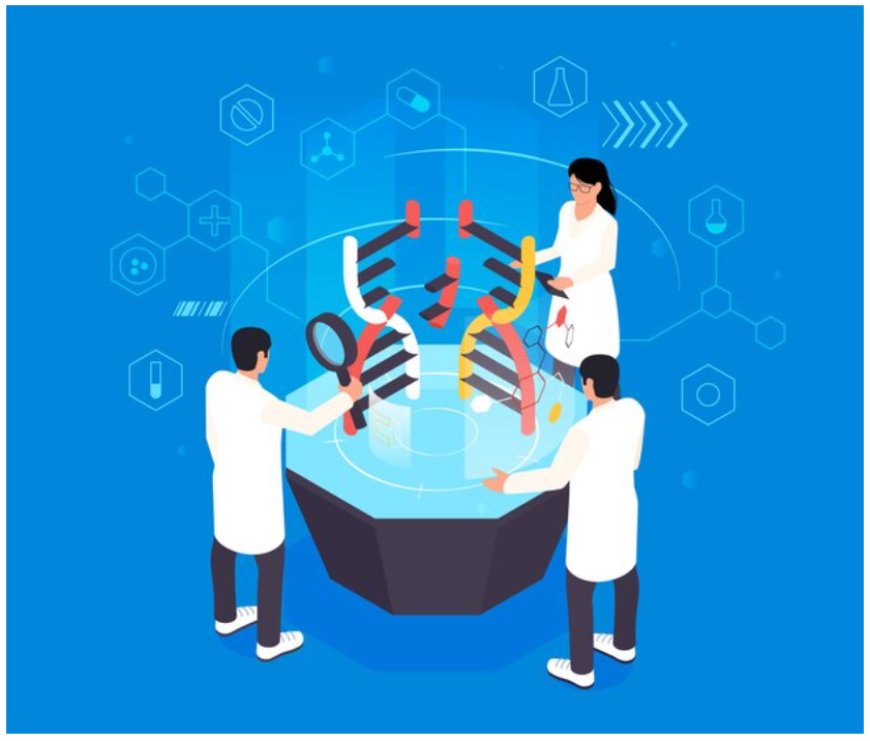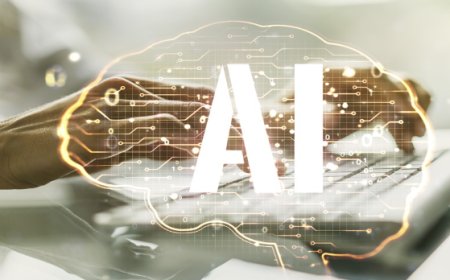Exploring the Impact of Artificial Intelligence on Healthcare
Discover the transformative impact of Artificial Intelligence on healthcare. Explore AI applications, benefits, and challenges in the medical field. Stay informed about the future of healthcare technology.

The integration of Artificial Intelligence (AI) into healthcare has emerged as a groundbreaking paradigm, revolutionizing the way we approach medical diagnosis, treatment, and overall healthcare management. As technological advancements continue to reshape various industries, the healthcare sector stands at the forefront of this transformative wave. AI's potential to enhance efficiency, accuracy, and patient outcomes has sparked a surge in exploration and implementation across medical disciplines. This exploration seeks to unravel the multifaceted impact of AI on healthcare, addressing not only the evident benefits but also the ethical considerations and challenges that accompany this technological evolution.
Healthcare Technology Landscape, Challenges, and the Rise of Artificial Intelligence.
The healthcare technology landscape is undergoing a profound transformation, marked by a blend of innovation and challenges. Currently, healthcare systems globally grapple with issues ranging from fragmented data management to resource constraints and a growing demand for efficient, patient-centered care.
Amidst these challenges, the emergence of Artificial Intelligence (AI) presents a promising solution. AI, with its machine learning algorithms and data processing capabilities, holds the potential to revolutionize healthcare by offering insights for accurate diagnostics, personalized treatment plans, and streamlined administrative processes. However, this ascent is not without hurdles, including concerns about data privacy, ethical considerations, and the need for robust regulatory frameworks.
The convergence of healthcare technology, challenges, and the rise of AI signifies a pivotal moment in the industry's evolution, where the strategic integration of advanced technologies becomes paramount to overcoming obstacles and enhancing the overall quality and accessibility of healthcare services.
Challenges in Healthcare: Balancing Demand, Accuracy, and Traditional Limitations.
In the complex landscape of healthcare, formidable challenges arise as the industry strives to meet the escalating demand for efficient and accurate services while contending with traditional limitations. The growing demand for healthcare services, driven by factors such as an aging population and evolving health needs, places immense pressure on the existing delivery and management systems. As the need for swift and precise medical interventions intensifies, healthcare providers are confronted with the imperative to strike a delicate balance between speed and accuracy.
Traditional approaches to healthcare delivery exhibit limitations in effectively addressing the modern challenges at hand. Outdated systems, manual processes, and siloed information contribute to inefficiencies that impede the seamless provision of care. This creates a pressing need for innovation and technological integration to streamline operations and enhance overall healthcare outcomes.
The juxtaposition of increasing demand, the necessity for accuracy, and the persistence of traditional constraints underscores the urgency for transformative solutions in the healthcare sector. Addressing these challenges involves a strategic and comprehensive approach, leveraging advancements such as Artificial Intelligence to optimize processes, improve diagnostics, and ultimately revolutionize the way healthcare is delivered and managed. In navigating this intricate terrain, the industry must adapt to contemporary demands while overcoming the constraints of outdated practices, paving the way for a more responsive and effective healthcare ecosystem.
What are the potential benefits of AI in healthcare?
The potential benefits of AI in healthcare are vast and can significantly transform the way healthcare services are delivered, managed, and experienced. Here are some key aspects to consider:
Enhanced Diagnosis and Treatment: AI can analyze vast amounts of medical data, including patient records, imaging results, and genomic information. This allows for more accurate and timely diagnosis, leading to personalized treatment plans tailored to individual patient needs.
Predictive Analytics for Preventive Care: AI algorithms can analyze historical patient data to identify patterns and trends. This enables healthcare professionals to predict and prevent diseases before they manifest, leading to more effective preventive care strategies.
Efficient Administrative Processes: AI can streamline administrative tasks such as appointment scheduling, billing, and record-keeping. This efficiency not only reduces the workload on healthcare staff but also minimizes errors and improves overall operational productivity.
Drug Discovery and Development: AI can expedite the drug discovery process by analyzing biological data and identifying potential drug candidates. This not only accelerates the development of new medications but also helps in identifying existing drugs that can be repurposed for different medical conditions.
Remote Patient Monitoring: AI-powered devices and applications enable continuous monitoring of patients outside traditional healthcare settings. This is particularly beneficial for individuals with chronic conditions, allowing healthcare providers to intervene proactively based on real-time data.
Precision Medicine: AI facilitates the practice of precision medicine by analyzing individual variations in genes, lifestyle, and environment. This enables the customization of treatment plans, ensuring that interventions are optimized for each patient's unique characteristics.
Improved Imaging Analysis: AI algorithms excel at analyzing medical images such as X-rays, MRIs, and CT scans. This not only speeds up the interpretation process but also enhances accuracy, leading to more reliable and early detection of abnormalities.
Cost Reduction and Resource Optimization: By automating routine tasks and improving overall efficiency, AI can contribute to cost reduction in healthcare. This allows for better allocation of resources, making healthcare services more accessible and affordable.
Transformative Benefits: AI's Positive Impact on Healthcare
In recent years, Artificial Intelligence (AI) has emerged as a powerful force in revolutionizing the healthcare sector, offering transformative benefits that have the potential to significantly improve patient outcomes and reshape the way healthcare is delivered. This topic explores the various positive impacts of AI on healthcare, encompassing a range of key areas.
-
Improved Diagnosis and Personalized Treatment Plans
AI algorithms, fueled by vast datasets and machine learning capabilities, empower healthcare professionals to enhance diagnostic accuracy. These technologies aid in identifying patterns and trends in patient data, leading to more precise and timely diagnoses. Furthermore, AI enables the development of personalized treatment plans tailored to the unique characteristics and needs of individual patients.
-
Enhanced Efficiency in Administrative Tasks and Resource Management
AI streamlines administrative processes in healthcare institutions, optimizing resource allocation and improving overall operational efficiency. Tasks such as appointment scheduling, billing, and data management can be automated, allowing healthcare professionals to focus more on patient care and reducing the likelihood of errors in administrative workflows.
-
Early Detection and Prevention of Diseases Through Predictive Analytics
AI's predictive analytics capabilities play a crucial role in identifying potential health risks and predicting the onset of diseases. By analyzing patient data, AI can provide early warnings and facilitate proactive interventions, ultimately leading to better prevention strategies and improved long-term health outcomes.
-
Examples of Successful AI Implementations in Healthcare
This section delves into real-world examples where AI has demonstrated its effectiveness in healthcare settings. From diagnostic imaging using AI algorithms to robotic-assisted surgeries and virtual health assistants, it showcases instances where AI has been successfully integrated into various facets of healthcare, transforming the way medical professionals deliver care.
Ethical Dilemmas: Privacy, Security, and Regulation in AI HealthcareIn
Artificial Intelligence (AI) in healthcare, ethical dilemmas arise concerning privacy, security, and regulation. As AI systems increasingly access and process sensitive patient data, concerns about the safeguarding of personal information and maintaining robust security measures become paramount.
The potential for data breaches and unauthorized access poses substantial risks to patient confidentiality. Moreover, the responsible development and deployment of AI in healthcare demand a solid regulatory framework to ensure transparency, accountability, and adherence to ethical standards. Striking a balance between innovation and safeguarding patient rights is crucial.
Addressing these ethical considerations requires ongoing dialogue among stakeholders, including healthcare providers, technology developers, policymakers, and ethicists. Establishing comprehensive regulatory guidelines becomes imperative to foster the responsible use of AI, assuring both healthcare advancements and the protection of individuals' privacy and security.
The integration of Artificial Intelligence into healthcare marks a transformative leap, promising enhanced diagnostics, personalized treatments, and streamlined operations. However, ethical considerations, privacy concerns, and the imperative for robust regulatory frameworks demand vigilant attention as we navigate this evolving landscape. Striking a delicate balance between innovation and responsibility is key to unlocking the full potential of AI in healthcare, ensuring a future where technology contributes to improved patient outcomes and overall system efficiency.











































